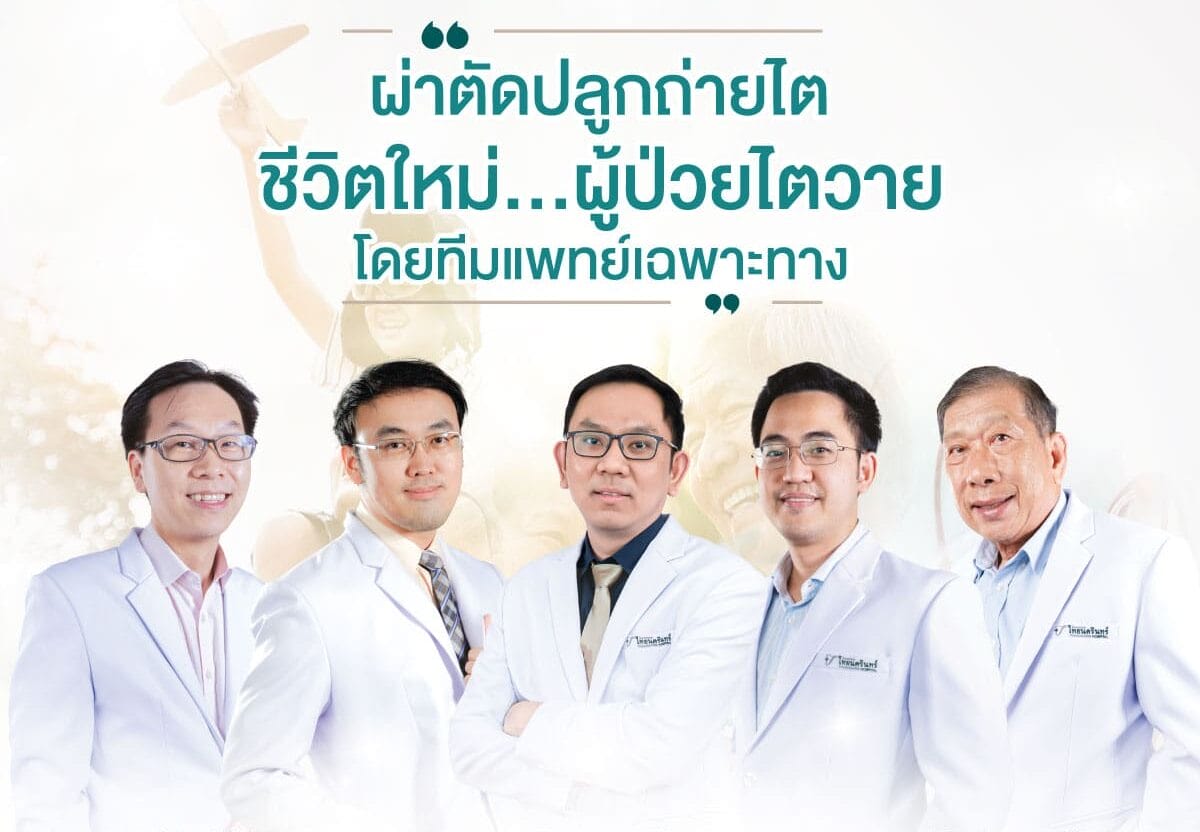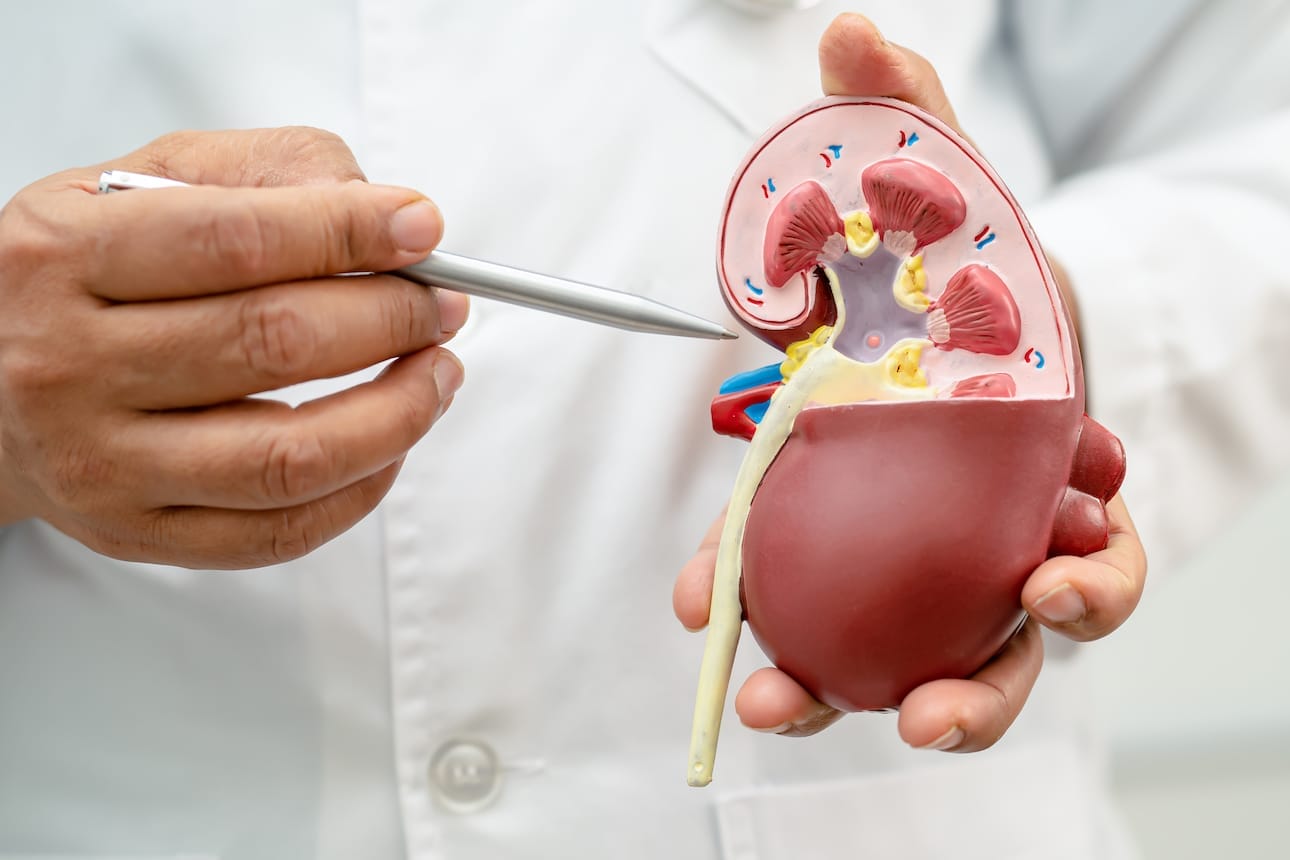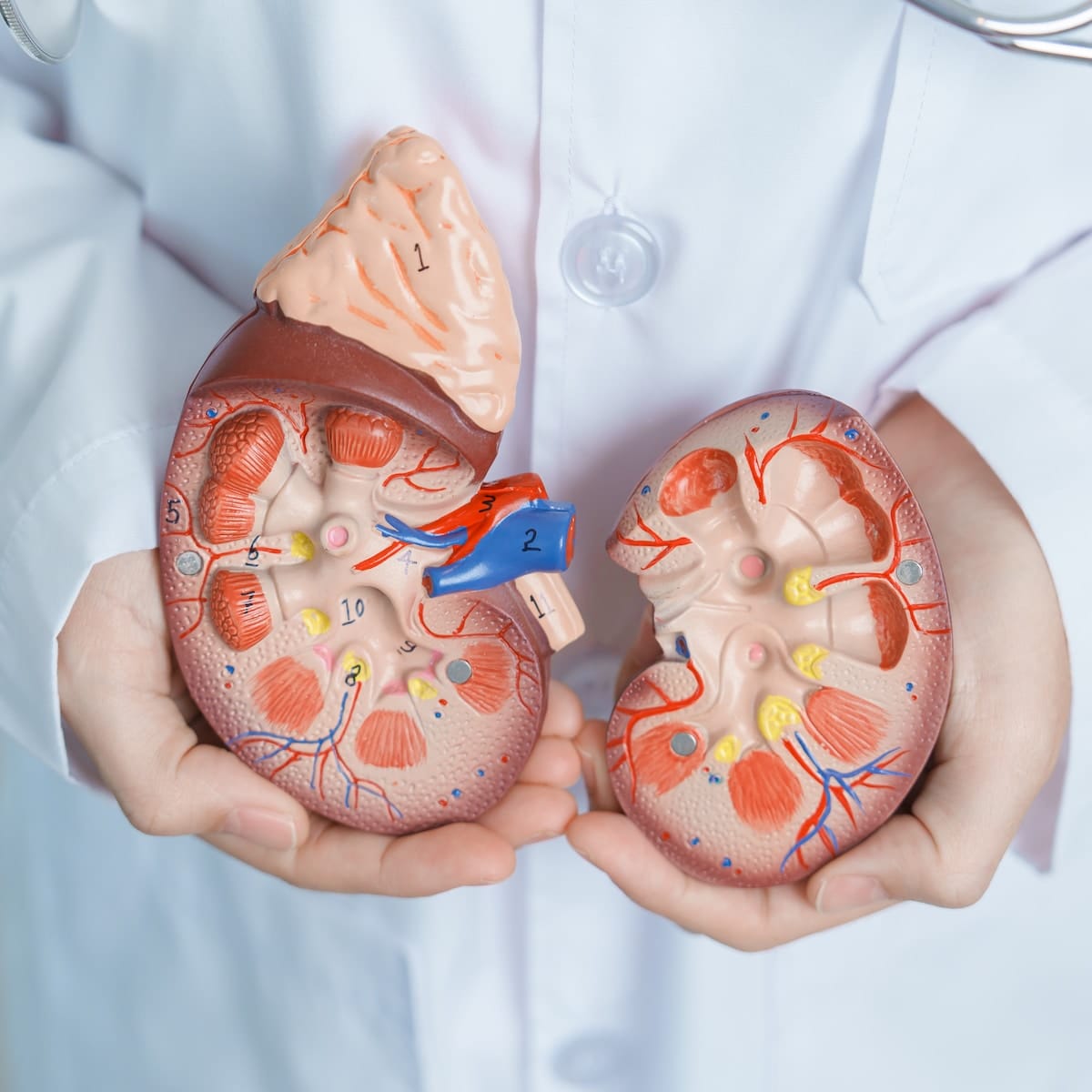Kidney Transplantation Center
Thainakarin Hospital's Kidney Transplant Center has been performing kidney transplant surgeries since 1996. Our procedures are conducted by a highly experienced multidisciplinary team of transplant specialists from various prestigious institutions across Thailand.

Kidney Transplantation Center
Thainakarin Hospital
Thainakarin Hospital's Kidney Transplant Center has experience in kidney transplantation since 1996, performed by a team of highly skilled specialists from various institutions across Thailand. The center is well-equipped to care for patients with chronic kidney failure, including those with complex conditions, both before and after the transplantation surgery. Additionally, it manages post-transplant complications such as organ rejection, transplant renal artery stenosis, infections, and hernias at the surgical site.

Kidney Transplantation Center, Thainakarin Hospital
Consisting of the main multidisciplinary team, including:
- A transplant surgeon (Transplant Surgeon) is the head of the organ transplant surgical team and has been trained in abdominal organ transplantation at renowned institutions recognized for their expertise in kidney and liver transplantation.
- A transplant nephrologist (Transplant Nephrologist) provides care both before and after kidney transplantation.
- A urologist provides consultation and care for the urinary system in kidney transplant recipients.
- Anesthesiologist
- The support team includes infectious disease specialists, transplant coordination nurses, psychiatrists, and others.
Kidney Transplant: Service/Diagnosis/Treatment
Thainakarin Hospital's Kidney Transplant Center provides care and kidney transplant surgery for patients with end-stage chronic kidney disease (provided there are no contraindications for kidney transplantation). The center also offers treatment for post-transplant complications, specializing in the following conditions:
- Kidney transplant surgery from living donors who are spouses, children, or siblings.
- Kidney transplant surgery from deceased donors, with organ donation facilitated through the Thai Red Cross Organ Donation Center.
- Re-Transplantation
- Post-transplant surgery to correct abnormalities in the blood vessels supplying the kidney after kidney transplantation.
- Post-transplant surgery to correct abnormalities in the ureter and bladder after kidney transplantation.
- Kidney Transplantation biopsy
- Kidney Transplantation Rejection
- Dialysis services with hemodialysis machines for patients with chronic and acute kidney failure.
- Hemodialysis services for patients with chronic and acute kidney failure using hemodialysis machines.
- Plasmapheresis
- Emergency hemodialysis services available 24 hours.
- Health screening services to detect diseases that pose a risk of kidney failure.
- Kidney Transplant Evaluation

Benefits patients will receive after kidney transplantation surgery include:
Kidney transplantation offers three main benefits over dialysis for patients, including:
- Better quality of life It allows patients to live without the need for prolonged dialysis treatments.
- Low Cost in Long-Term Treatment In the initial stage, the cost of kidney transplantation is high, and patients must take immunosuppressive medications for life after the surgery. However, when considering long-term expenses, the cost of kidney transplantation is lower than the cost of ongoing dialysis treatments
- Lower Mortality Kidney transplantation has a higher survival rate compared to dialysis patients. Overall, the mortality rate for dialysis patients is approximately 10-20% per year.
Meanwhile, the 1-year survival rate for kidney transplant recipients is approximately 95-99%, and the 5-year survival rate is around 90%.
Kidneys used for transplantation come from two main groups:
- Living Donor
- Deceased Donor




